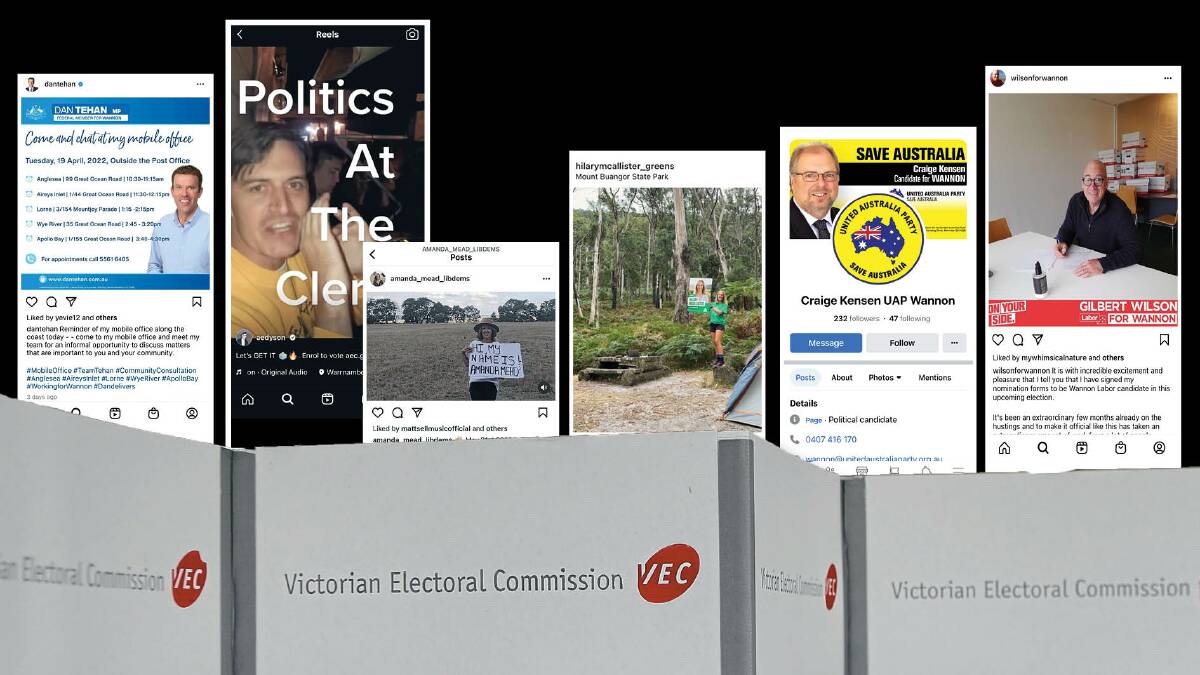
IT'S a busy Friday night at Warrnambool's Laneway Bar and standing behind a set of DJ decks is independent federal election candidate for Wannon Alex Dyson.
Subscribe now for unlimited access.
or signup to continue reading
He's wearing his Jamieson Street Primary School jumper, and while traipsing the outdoor venue getting his jumper signed he's asking young people: have you enrolled to vote yet?
He later posts a video on TikTok, "politics at the clerb" and starts with the opener "politics sucks, but since I'm running as an independent I want to make sure young people get their voices heard too."
In it, young people were surprised they were looking at a political candidate.
"You? Are you going for parliament?" one woman asks.
Meanwhile Australian Greens candidate Hilary McAllister has been pitching her policies quite literally - with a tent.
Her CAMPaign has traversed some of the most untouched parts of the electorate to show her commitment to the environment.
Then there's incumbent MP and candidate for the Liberal Party Dan Tehan, who has been connecting with the community through a roaming mobile office during the day outside post offices across the region.
He gets this message out by way of social media platforms.
Labor's Gilbert Wilson announced his run for office with a post on Instagram in November 2021, with social media content largely with a national focus.
Liberal Democrats candidate Amanda Mead has honed her content focus on regional and rural voters. Her most recent campaign video shows her holding signs outlining her party's policies, including "less government, more freedom" and the pledge not to raise taxes.
Craige Kensen uses his UAP Wannon Facebook page for campaigning, drawing mostly on content from billionaire party chairman Clive Palmer. He's been travelling the electorate hosting 'BBQ with Craige Kensen' events.
Social media a 'core strategy' in political campaigns
The role of social media in politics has been growing in the last decade.
Platforms like TikTok have become increasingly popular, with The Liberal Party, Australian Labor Party, Australian Greens and many independent candidates joining the platform.
Dr Lauren Rosewarne is an associate professor at the University of Melbourne. Her research into pop culture, public policy and politics looks into the inextricable link between social media and politics.
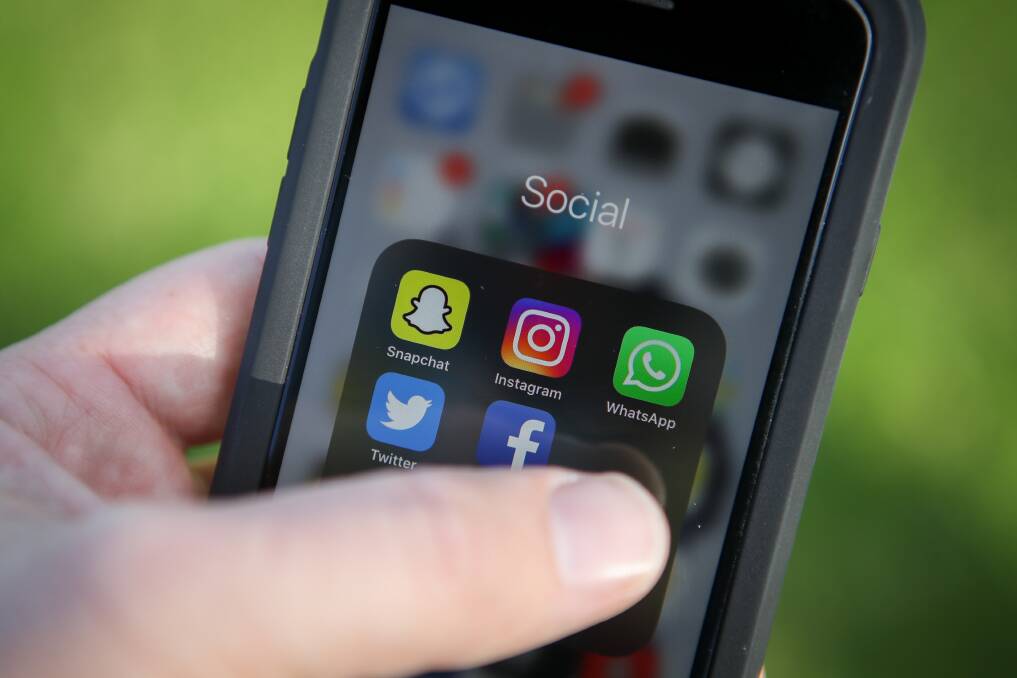
It's not an option anymore for a candidate not to have a social media presence.
- Dr Lauren Rosewarne
"It's not an option anymore for a candidate not to have a social media presence," Dr Rosewarne said. "We're now 20 years nearly into this technology, there's an expectation that they're visible on these platforms.
"They need to go to where the voters are and a lot of voters are going to be on social media, as opposed to some of the old-school election campaign tools such as television, which we know people aren't watching in the same ways that they were even 10 years ago."
In the seat of Wannon all candidates are on social media in some form; only UAP's Craige Kensen is on Facebook only, and only Alex Dyson is on Facebook, Instagram, Twitter and TikTok.
Dr Rosewarne said the choice of platform is deliberate.
"I can imagine that if your brand is dry, your constituent base is conservative, and that you're never going to win over a youth vote, there's probably no point going on certain platforms as well. And that's a calculated decision.
"For some people, a town hall is going to be more effective than a TikTok video, but yet a 19-year-old is going to be less likely to go to a town hall than watch the TikTok video."
Combating spread of misinformation
Millions of Australians use social media to stay informed and express their views, which also means false claims can spread rapidly.
In response, the Australian Electoral Commission has updated a toolkit designed to protect trust in the ballot.
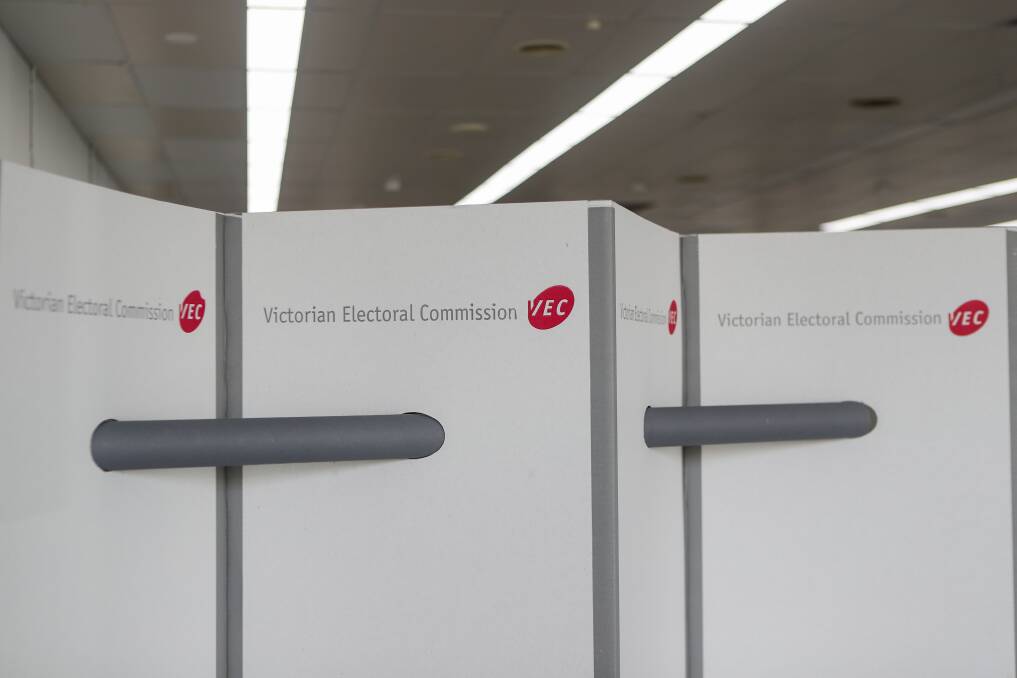
AEC digital engagement director Evan Ekin-Smyth told AAP it's been different in the lead up to May 21 election compared to past polls.
There has always been robust political commentary associated with federal elections, but the channels have changed, and it's becoming more prominent, he added.
"We're certainly seeing more commentary - including ill-informed commentary - regarding electoral processes than we have in previous electoral cycles leading up to a federal election," Mr Ekin-Smyth said.
Research by Twitter shows more than a third of young Australians will get most of their political information from social media during the six-week election campaign.
TikTok, which has had a rapid rise in popularity particularly with Australia's 600,000 first-time voters, last month launched an in-app election guide with the AEC.
The app's director of public policy Brent Thomas said user guidelines prohibit harmful posts, including content that misleads community members about elections
"We will remove misinformation that causes significant harm to individuals, our community, or the larger public regardless of intent," he said.
TikTok has also partnered with AAP FactCheck to examine election-related content. Users can also report misleading content.
Under TikTok's policy, political commentary is allowed but political advertising is not.
Dr Rosewarne said she's not particularly concerned that social media's rise would result in less nuanced political debate.
"Politicians are expected to communicate in a way that's understood by their audience, and if that means to make it concise, make it short, make it digestible, I don't see a problem in that," she said.
"I actually think that's a positive. We've had politicians in the past criticised because their messaging was impenetrable by the ordinary person."
So is there more accountability and transparency now, or is it easier to spin messages?
"I think audiences are much more savvy to this idea that authenticity can be something that's orchestrated," Dr Rosewarne said.
"We know we're being sold to and that authenticity is just one of those tools being used.
"I don't think there is anybody who's necessarily going to think that just because you're talking politics while making pasta or, you know, playing the ukulele, that there's something natural about that.
"The very fact that you putting a camera in front of you makes it unnatural."
Is social media making politics more accessible?
Dr Kate Fitch, who is an expert in media, communications, PR and social media at Monash University, says since the 2013 election social media has become more systematic and a core strategy in any political campaign in Australia.
The rise of TikTok has been an interesting one to watch in her research. She says compared to other social media platforms it has higher engagement levels and people are watching for longer.
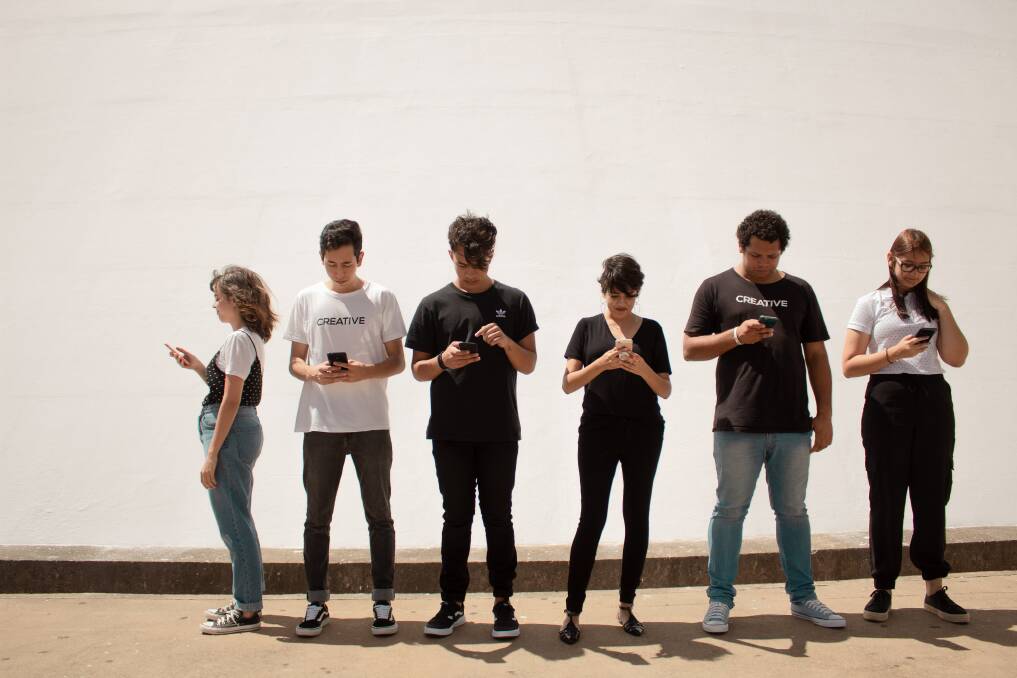
"It's hard to gauge the impact but they're reaching a kind of new and younger audience with really high engagement levels," Dr Fitch said.
"One of the challenges in researching political campaigning through social media is we haven't got a lot of transparency about the kinds of ads and where they're being targeted.
"This has particularly been an issue in doing research on Facebook because they employ such micro-targeting.
"It's really hard to verify the claims or to know even how effective they are."
So is social media making politics more accessible? The answer is more complicated than that for Dr Fitch.
They've contributed to polarisation and division as much as they've enabled new ways of engaging with politicians or with political ideas.
- Dr Kate Fitch
"Their algorithms work around driving audience and attention and therefore profits, so they're not necessarily more democratic because they have a commercial imperative underpinning them," she said.
"They've certainly contributed I think, to polarisation and division, as much as they've enabled new ways of engaging with politicians or with political ideas."
On the cusp of week three of the political campaign, will the influence of social media be greater than previous elections?
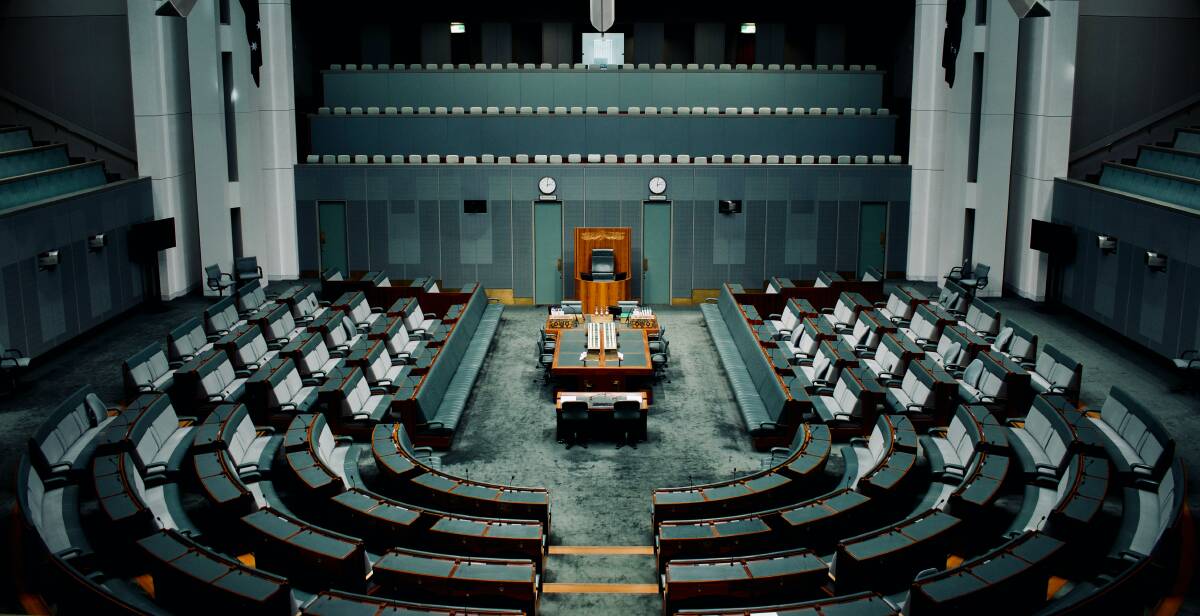
"The 2019 election really drilled home that you cannot anticipate that what's happening on social media platforms in terms of sentiment is any indication as to what's actually going to happen with the election outcome," Dr Fitch said.
"Australia is interesting because we've got compulsory voting so our campaigns are targeted at the undecided voters. So that's quite different from other countries where you're trying to encourage your supporter base just to vote in the first place."
Dr Fitch believes nontraditional platforms may help the rise of independent players.
"Because of the broader, I think, lack of trust in major political institutions and the two main parties in Australia, and the growing dissatisfaction with some of the platforms, we're seeing this rise of independents," she said.
"They're not trying to toe a party line nationally, they're able to have that kind of local level engagement and social media can really assist with that."
Now just one tap with our new app: Digital subscribers now have the convenience of faster news, right at your fingertips with The Standard:















